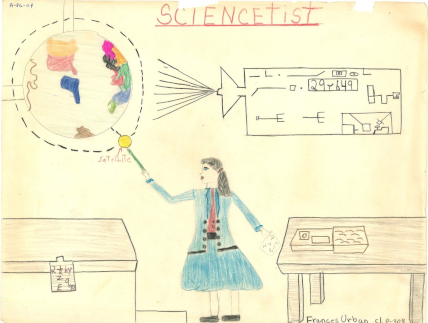Science policy, environmental history, aeronautics, psychoanalysis, and more.
The Library of Congress is the largest library in the world, with millions of books, recordings, photographs, newspapers, maps and manuscripts in its collections. The Library is the main research arm of the U.S. Congress and the home of the U.S. Copyright Office. Its collections consist of more than 171 million items, including more than 40 million cataloged books and other print materials in 470 languages; more than 74 million manuscripts; the largest rare book collection in North America; and the world's largest collection of legal materials, films, maps, sheet music and sound recordings.
Of particular interest to historians of science, technology, and medicine are the holdings of the Manuscript Division, whose nearly 12,000 separate collections include some of the greatest manuscript treasures of American history and culture. Notable collections include 23 groups of presidential papers ranging from Washington to Coolidge, the papers of a substantial number of government officials, records of organizations like the NAACP and National Urban League, and papers of thousands of individuals which support research in many aspects of political, cultural, and scientific history. Also of note is the Library’s Science, Technology & Business Division, which provides reference and bibliographic services and develops general collections in all areas of science, technology, business, and economics with the exception of clinical medicine and technical agriculture.
Other links
- Inside Adams (blog): Science, Technology and Business Division
- Unfolding History (blog): Manuscript Division
- Research guide to Architecture, Design and Engineering Collections in the Library of Congress Prints & Photographs Division
- Ask a Librarian: Manuscripts
- Finding aid search
- Digital collections
The Manuscript Division maintains more than 700 science and technology collections, including those within its core collecting areas of science policy, environmental history, aeronautics, and psychoanalysis and many others deemed to be of general national significance. Some of those represented include:
- American Psychological Association
- Clara Barton
- Alexander Graham Bell
- Luther Burbank
- Vannevar Bush
- Andrew Carnegie
- Abraham Flexner
- Sigmund Freud
- George Washington Goethals
- Henry Aaron Hill
- Matthew Fontaine Maury
- Margaret Mead
- Samuel F.B. Morse
- Simon Newcomb and Anita Newcomb McGee
- J. Robert Oppenheimer
- I.I. Rabi
- Vera Rubin
- Margaret Sanger, Gregory Pincus, and M.C. Chang
- Claude Shannon
- Carl Sagan and Ann Druyan
- Werner von Braun
- John von Neumann and Klara Dan von Neumann
- Harvey Washington Wiley and Anna Kelton Wiley
- E.O. Wilson
- Wilbur and Orville Wright
…and many more
